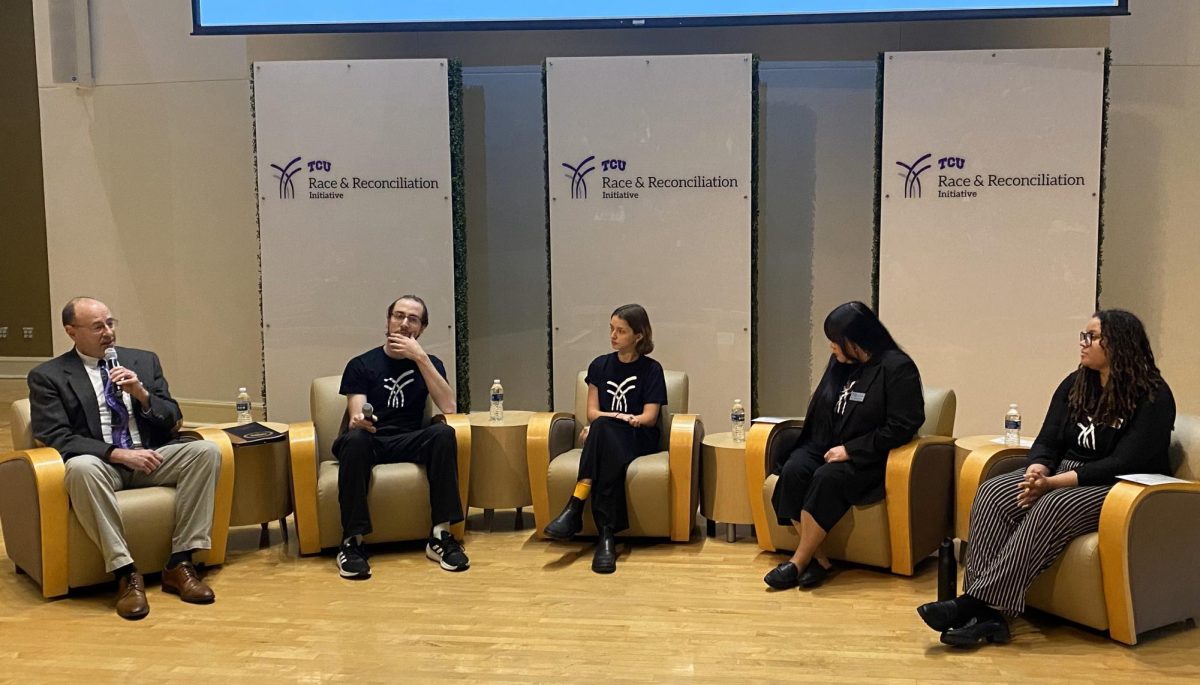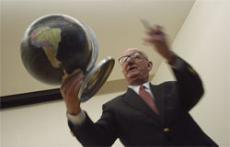The world is in an ice age right now, a geography professor told a group of students and faculty members Tuesday morning in Dan Rogers Hall.”Over the past billion years, the planet has, every several hundred million years or so, been going through an ice age,” said Harm de Blij, distinguished professor of geography at Michigan State University. “We don’t realize it because it is so salubrious and pleasant and predictable out there, that we kind of can’t imagine that we might fall off a cliff all of a sudden, environmentally.”
The ice age was only one of many topics de Blij spoke about during the event, which was sponsored by the department of history and geography.
He discussed how the study of geography and climate has affected and will continue to affect world economic, political and social issues. De Blij said there are a few key crises which are of concern now.
The first of these, based on patterns of Earth’s warming and cooling, is that the earth will again cool, very rapidly, and perhaps within a human lifetime, de Blij said.
He said although humans are contributing to global warming through pollution, it will not prevent the drop in temperatures.
“If we think that we can override nature’s grand design, we really are more arrogant than we all speak,” de Blij said. “Other creatures, in the past, have created huge alterations in the atmosphere and … have been overpowered by these grand cycles.”
De Blij said the change in climate must be considered in developing future strategy.
“We should be preparing not only for oil crises and terrorist crises, but we should be planning also for environmental change,” he said.
Another key crisis he discussed involves China’s future impact on the world.
Unlike the United States, China has allies in closer geographic proximity that could provide needed resources in the event of an extreme decline in global temperature. This would give them an advantage in this situation, de Blij said.
Knowing what is going on in the world can best help its citizens prepare for the future, de Blij said.
“When it comes to geography, knowledge is power. There is no better way to get a picture of where we are in the world today, than through the lens of geography,” he said.
Students expressed similar reactions to de Blij’s speech.
“I think the whole world should hear it,” said Lindsey Danielson, a senior general studies major.
Joseph Arnold, a junior history major, said he enjoyed the speech.
“He did a good job of making it both informative and entertaining,” he said.
Arnold said de Blij discussed topics that had been brought up in other courses he is taking.
“The talk coincided with political issues we discussed in my Chinese military history class,” Arnold said.
James Stevens, a senior geography major, said geography influences many subjects.
“(Geography) is interdisciplinary – topics such as economics, government and politics are all affected,” Stevens said.
One student said she liked the way de Blij used a globe and hand-drawn diagrams to illustrate his points.
“Geography is a visual social science,” said Lauren Geffert, a junior environmental science and geography major. “It was great to see what he was trying to explain.





